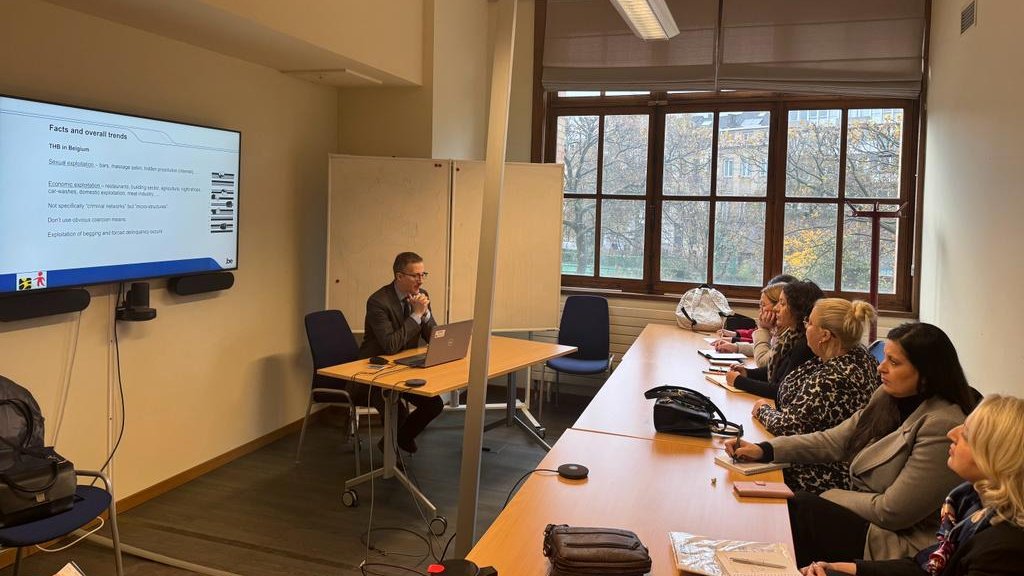Providing shelter and psycho-social services to victims of human trafficking is a key to their mental stabilisation and successful resocialisation. The Group of Experts on Action against Trafficking in Human Beings (GRETA) in its third monitoring report on North Macedonia tackled the challenges to ensure safe accommodation for adult male persons victims of trafficking.
In the process of supporting public authorities in North Macedonia to offer sustainable accommodation and services to trafficking victims the EU and Council of Europe joint action “Strengthening anti-trafficking action in North Macedonia” organised a study visit to Belgium for the local anti-trafficking actors. The aim of this study visit was to learn more about the Belgium protection system of trafficking victims and identify good practices in this regard that can be applied successfully in North Macedonia.
The delegation consisted of representatives from the National Referral Mechanism, of the National Anti-trafficking Task Force and of the anti-trafficking NGO Open Gate/La Strada. They had the opportunity to meet with the Belgian counterparts from the Service Public Federal Justice (SPF), which is in charge with the human trafficking coordination, the Federal Migration Centre (MYRIA) and 3 shelters for trafficking victims. The 3 accredited specialised human trafficking shelters are mostly providing shelter and services to migrant trafficking victims. In addition to accommodation, the shelters provide for their basic needs and cover medical and legal assistance, as well as assist victims to orient in the system and obtain residence permits. There is also one specialised shelter for the child victims, which is funded by the regional government. Due to shelters’ co-operation network, the services of other shelters are made available also to child trafficking victims. The shelters are subjected to external and internal audit regarding their budget and quality of services. In case of a gross violation, the shelter’s licence could be revoked.
“The trip to Belgium has given us ideas and durable solutions to the common problems, such as funding and specialised programmes for children. The recommendations of the feasibility study on sustainable accommodation and services to trafficking victims in North Macedonia will take into consideration the learning outcomes from this study visit” affirmed Marija Todorovska, from the NGO Open Gate/La Strada, co-drafting the above feasibility study.
Visiting the 2 shelters for adult victims and 1 shelter for child trafficking victims, enabled the participants to the study visit to see how the shelters function in practice, in terms of security, risk assessments, victims’ recognition, individual and educational programmes and other support for victims, including resocialisation and reintegration. They were also able to get an insight in the daily activities of the trafficking victims.
Information and experience shared by the Belgian counterparts shall be used to offer a durable solution to the identified challenges with trafficking victims’ accommodation and catering for their needs.
The visit was organised as part of the EU and Council of Europe joint programme “Horizontal Facility for the Western Balkans and Türkiye”, phase III.


